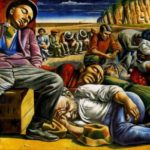
The New Debt Colonies
In the wake of the global financial crisis, methods of financial subjugation have been applied on a massive scale in the capitalist heartland itself. The result has not just been a new wave of “accumulation by dispossession,” but in some cases also the effective abolition of national sovereignty.
 Viewpoint Magazine
Viewpoint Magazine







